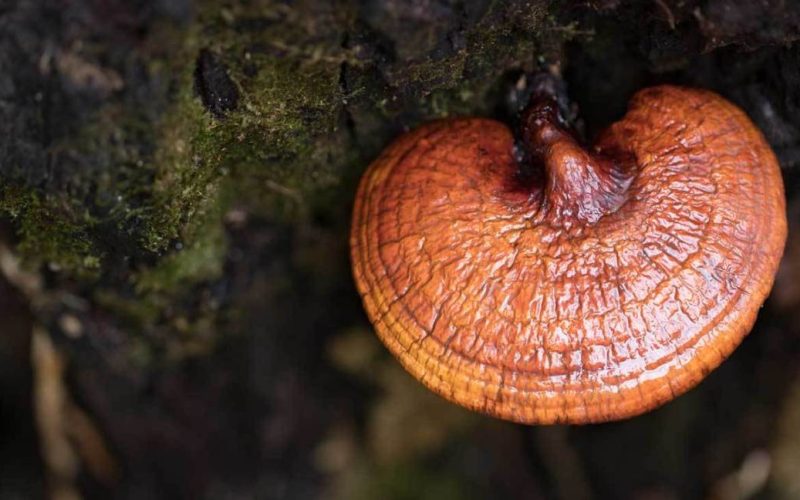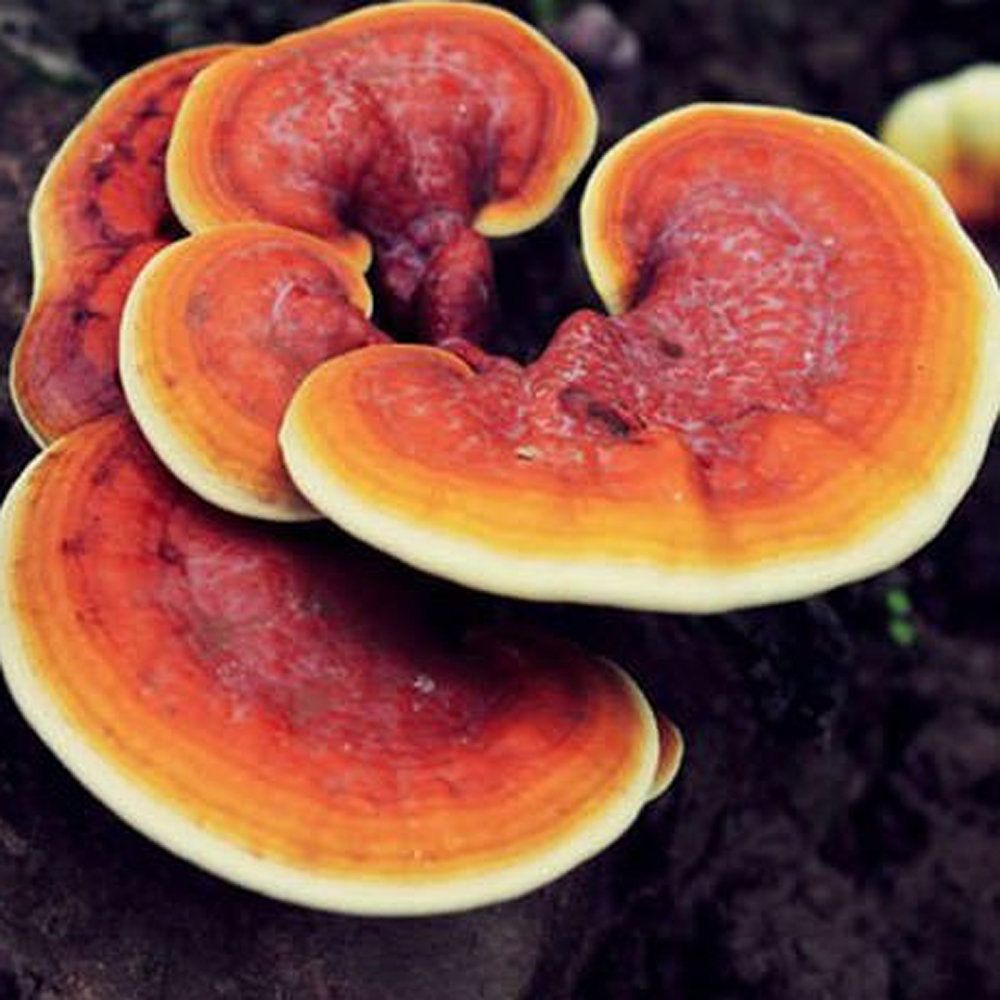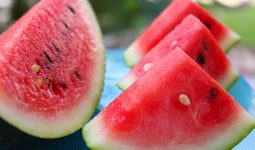Asian medicine utilizes the use of several fungi and plants. Amazingly, the reishi mushroom is exceptionally popular.
The mushroom is used for its health benefits, including treating cancer, boosting the body’s immunity, and more.
Nevertheless, the safety of the usage of the mushroom has recently required more evaluation. Please read on to find out more about the benefits and side effects of reishi mushroom.
Reishi Mushroom
Also referred to as Ganoderma Lucidum and lingzhi, the reishi mushroom is a fungus that can be found growing in various humid and hot places in Asia. The fungus has been a key ingredient used for treatment in eastern medicine.
The mushroom contains numerous molecules, which include polysaccharides, triterpenoids, and peptidoglycans that may be used to boost overall health. Even though the fungus can be consumed fresh, it’s also safe to use in powdered forms or extracts that comprise these particular molecules.
These diverse forms have been tried on animals, cells, and humans studies.
6 benefits of reishi mushroom
1. Boosts our immune system
One essential component of the reishi mushroom is its positive effect on the immune system. Although we still aren’t sure about some facts, test-tube studies have proven that the fungus affects the genes present in white blood cells that are responsible for the body’s immunity.
Furthermore, these studies have also shown that reishi may be used to alter inflammation pathways in white blood cells. Experts in the field of cancer research have noticed some molecules present in reishi can be used to maximize the activity of white blood cells, which are natural killer cells.
These killer cells attack cancer and infections in the body.
2. Anti-Cancer effects
Several people eat the mushroom because it has potent cancer-fighting properties. A study carried out on more than 4,000 breast cancer survivors discovered that about 59 percent of them ate reishi mushrooms.
Other tests showed that some properties in the mushroom kill cancer cells. It is also believed that the fungus can be used to reverse prostate cancer, but this is still debated.
The mushroom has been studied for its effect in preventing colorectal cancer. It’s also speculated that a year’s treatment using reishi mushroom can reduce the size and number of tumors present in the large intestine.
3. Used to fight depression and fatigue
The effect of reishi on the immune can’t be denied, but let’s not forget other advantages of the fungus. This includes reducing depression and fatigue while increasing the quality of life.
132 people were studied and found to have been suffering from neurasthenia, which is a condition associated with pain, aches, dizziness, irritability, and headaches. These people got better after eight weeks of including reishi supplements in their diet.
Further studies showed that they experienced less depression and anxiety. Although the mushroom has such powerful effects, we are still not sure if it would help otherwise healthy people.
4. Improves heart health
A study that lasted for three months and involved 26 individuals showed that reishi mushroom might decrease triglycerides and maximize good HDL cholesterols.
Notwithstanding, further studies in healthy adults noticed no improvement in the heart condition rush factors.
5. Controls blood sugar
Numerous studies have shown that some molecules found in the fungus can reduce blood sugar in animals. Some preliminary human studies reported the same. Nevertheless, the benefits haven’t been supported by many types of researches.
Different results were recorded for blood sugar after eating. In some cases, the mushroom reduced blood sugar, while in others, it worked worse than a placebo. In other words, further research is needed to understand how it works thoroughly.
6. Antioxidant status
Antioxidants are referred to as molecules that help to prevent cell damages. Due to this factor, some foods and supplements have been proven to have an abundance of antioxidants in them.
Some people also claim that reishi mushroom equally has antioxidant properties.
Notwithstanding, some studies still found no changes in the levels of some antioxidant enzymes present in the blood even after eating the mushroom for 4-12 weeks.
Dosage
Unlike some supplements or foods, the dosage of reishi mushroom can differ based on the type that’s used. The dosage is higher when a person eats the mushroom directly. In this case, the dose may be measured from 25-100 grams, but it depends on the size of the mushroom that was eaten.
Generally, a dried extract of the fungus is used instead. In cases like this, the dose can be measured at 10 grams, which is less than compared to when it’s consumed fresh.
For instance, 50 grams of a fresh reishi mushroom may be compared to about 5 grams of the extract. Even the doses of extracts from the mushroom differ, it typically ranges from 1.5-9 grams each day.
Furthermore, only some portion of the mushroom extracts is used in some supplements. In such cases, the doses recommended may be lower than the grams mentioned above. Since the recommended dose is based on what form of reishi mushroom is used, it is essential to understand the type you are using.
Possible dangers and side effects
Even though it’s well-known, some people still question the safety of the mushroom. Some studies have found that people who took reishi mushroom for 16 weeks were almost twice as likely to experience side effects as people taking placebo.
Nevertheless, the side effects are very minimal, and this includes a slight increase in stomach upset or digestive issues. There were no adverse effects on the health of the liver or kidney. Limited information about reishi mushroom is what’s available presently, which is why there are no safety data.
Because of how sensitive the fungus is, and how some people might react to it, it’s best to consult with your doctor first before trying it out. These include people with blood disorders, pregnant or breastfeeding, low blood pressure, or people who just underwent surgery.
Outlook
Reishi mushroom is a fungus that’s popularly used in Eastern medicine. It may be used to boost the body’s immune system through its effects on our white blood cells, especially in people with cancer.
Reishi mushroom can also be used to reduce the number and sizes of tumors in some types of cancer. While some research on humans has shown that it doesn’t improve blood sugar, cholesterol, or antioxidants, it may be used to decrease depression or fatigue in some cases.
Have you tried taking reishi mushroom before? How would you describe its effects so far? Are there tips or suggestions you’d like to share with us? Kindly do so in the comments below.








